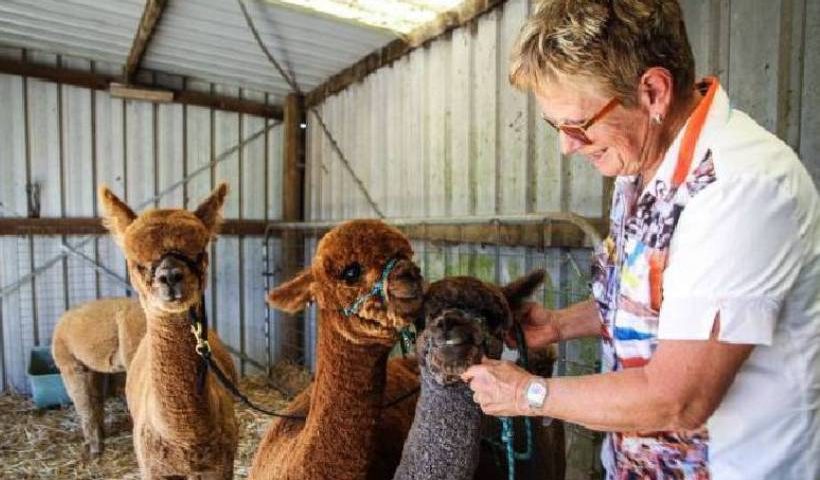Diseases Spread From Alpacas And Medications For The Same

Knowing About Alpaca Fiber Farming
April 30, 2019
Bovine Tuberculosis – A Disease Spread By Alpacas
Alpacas are unique livestock that is raised for their luxurious fleeces. Alpacas farming are done for various other purposes. They are exotic and curious animals that require special care when compared to other livestock. There are chances of spread of various diseases from alpacas to other cattle. There is a high risk of Bovine TB to be spread through Alpacas.
Transmission of diseases in Alpacas and the Medications done
 Bovine TB is a disease which would be a high risk to cattle, public, and other animals. The infections are usually caused by droplets expelled from the lungs during cough from infected animals. Direct contact of wound can also result in the transmission of this disease. This disease can be identified through several symptoms. Alpacas were low-risk animals to be attacked by Bovine TB. But recently nearly 500 alpacas were slaughtered as they were infected with Bovine TB. The Department of Environment Food and Rural Affairs warns the farm owners that the Alpacas affected with Bovine TB can spread the disease to the public. There is a lack of regulation for TB in alpacas which can spread the disease to other farm animals.
Bovine TB is a disease which would be a high risk to cattle, public, and other animals. The infections are usually caused by droplets expelled from the lungs during cough from infected animals. Direct contact of wound can also result in the transmission of this disease. This disease can be identified through several symptoms. Alpacas were low-risk animals to be attacked by Bovine TB. But recently nearly 500 alpacas were slaughtered as they were infected with Bovine TB. The Department of Environment Food and Rural Affairs warns the farm owners that the Alpacas affected with Bovine TB can spread the disease to the public. There is a lack of regulation for TB in alpacas which can spread the disease to other farm animals.
It is alarming that alpaca’s farmers can legally refuse to test a suspect animal and there are no strict regulations for alpaca farms for performing regular TB test. Another reason for the spread of diseases from alpacas is that there is no registration for the sale or movement of Alpacas.
A medical professional in Chennai who is into Medical Research at https://www.andersondiagnostics.com/radiology/pet/, recommends alpaca farm owners to take several precautions to prevent the transmission of Bovine TB on alpacas.Proper medications and treatment should be offered to the livestock that suffers from Bovine TB. Alpacas are animals that do not show off any symptoms of diseases and looks healthy. Thus it is essential that you perform regular check-ups and track the weight of the livestock regularly.
It is not possible to monitor the disease in Alpacas. There is a need to develop a reliable test that helps to detect Bovine TB in animals. The skin test performed for detecting this disease is not effective. Several research works are carried out to find an effective test to detect this disease on animals and especially alpacas. Researchers are also  working on ways to control the spread of the disease on animals.
working on ways to control the spread of the disease on animals.
Alpaca owners are legally obliged to report if an alpaca dies due to the Bovine TB which was found in postmortem examinations.
It is also recommended to slaughter the alpacas affected with this disease. This would help to prevent the transmission of the diseases to other animals on the farm.
The treatment process for Bovine TB on animals is lengthy, and it incurs more cost. There are several drugs used for treating this disease. It is alarming that some of the drugs suggested are resistant to Bovine TB.The above article gives a clear overview of the transmission of diseases form alpacas and the treatment for the same.
Read More : Knowing About Alpaca Fiber Farming
